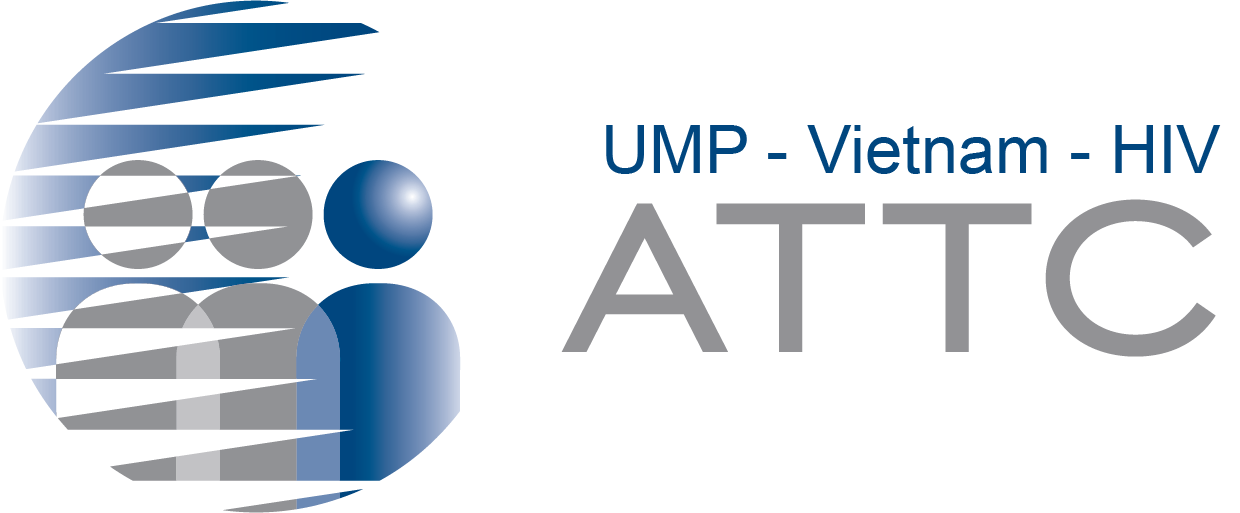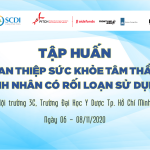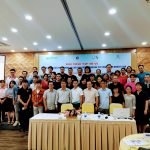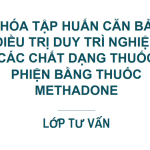Workshop: Medication-Assisted Recovery Services (MARS) for MMT Patients
MARS (Medication – Assisted Recovery Services) Program was first initiated by Mr. Walter Ginter, and Ms. Joycelyn Woods and NAMA-R (National Alliance on Medication-Assisted - Recovery) at Department of Substance Abuse, Albert Einstein College of Medicine, New York.
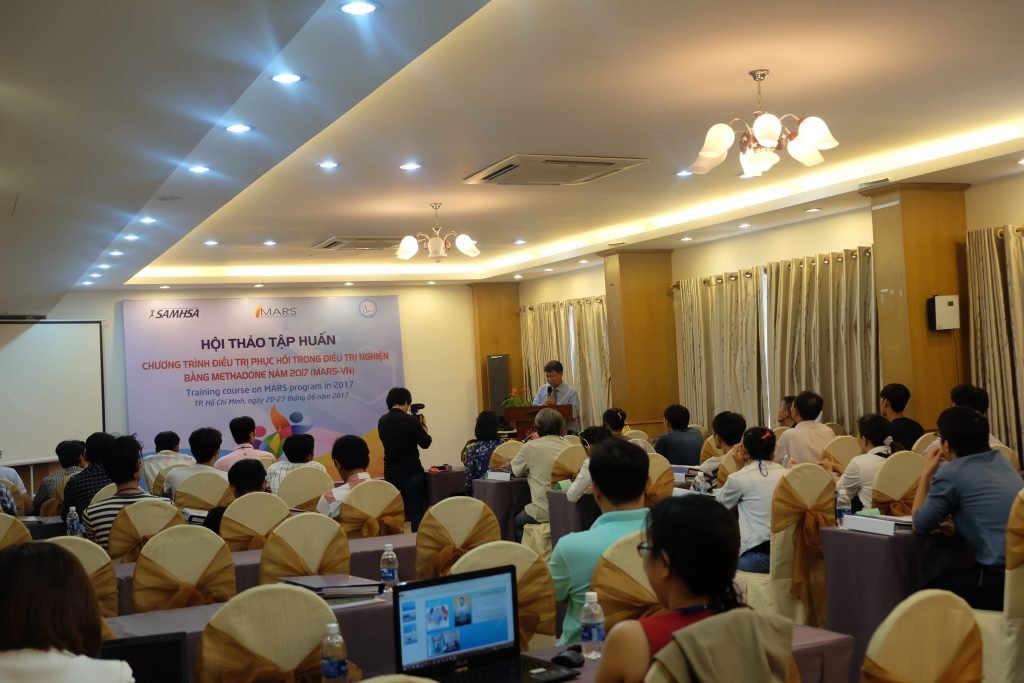
This program was later designed by Ms. Suzanne-Westcott with comprehensive manuals and duplicated through MARS Beyond all over the US and other countries.
Once special thing about this program is that Mr. Walter – Founder of MARS program – is also a Methadone patient. His story on recovery path is a huge inspiration for not only the program makers but also to other patients who have the same experiences and challenges during their recovery process. In 1972, the boredom of army life had lead him to his first heroin use. After a long time wallowing himself in addiction, he seeked help in Methadone Maintenance Therapy (MMT). Every time he did good on her treatment, he felt he had come back to the so-called recovery life as we might imagine with a stable job, housing and earning a lot of money. He, however, thought that Methadone was still, by all means, a drug, and that his life still had to stick with it. That was the reasons why he kept dropping out over and over again. And over and over again, he backed to his beaten tracks. Things just changed when he met Ms. Joycelyn Woods, who had used her knowledge and insights to explain to him Methadone is a medicine and he was a patients of a chronic illness. Since then, they started to build up a set of training materials because he wanted every other patients had better cognition to their situation, including: addiction, recovery and medications. All those initial efforts are the very first steps on the development of MARS Program.
MARS is a supportive model for peers (which means drug-use patients under treatment). As we may know, comprehensive treatment involves multi-factors, including: psychological, societal and medical factors. Previously, there was always a separation among these factors. Each of them was only aiming at a specific side and trying to prove that focusing on this factor was always better than others. For examples, on one hand, addiction medicine remarkably focuses on physical features of addiction such as detoxification, medications, etc. On the other hand, counselors at clinics investigate addiction under the psychological perspectives with all kinds of intervention such as group counseling, individual counseling. And with the development of addiction science in the recent years, these separate factors are starting to get closer. That is to say, addiction treatment does not merely limit with single factor such as psychological. social or medical, it’d rather a combination of all. We have been doing quite well on counseling and medication, not yet with social support. That is one of the reasons for MARS to exist. MARS is a recovery program, not a treatment model.
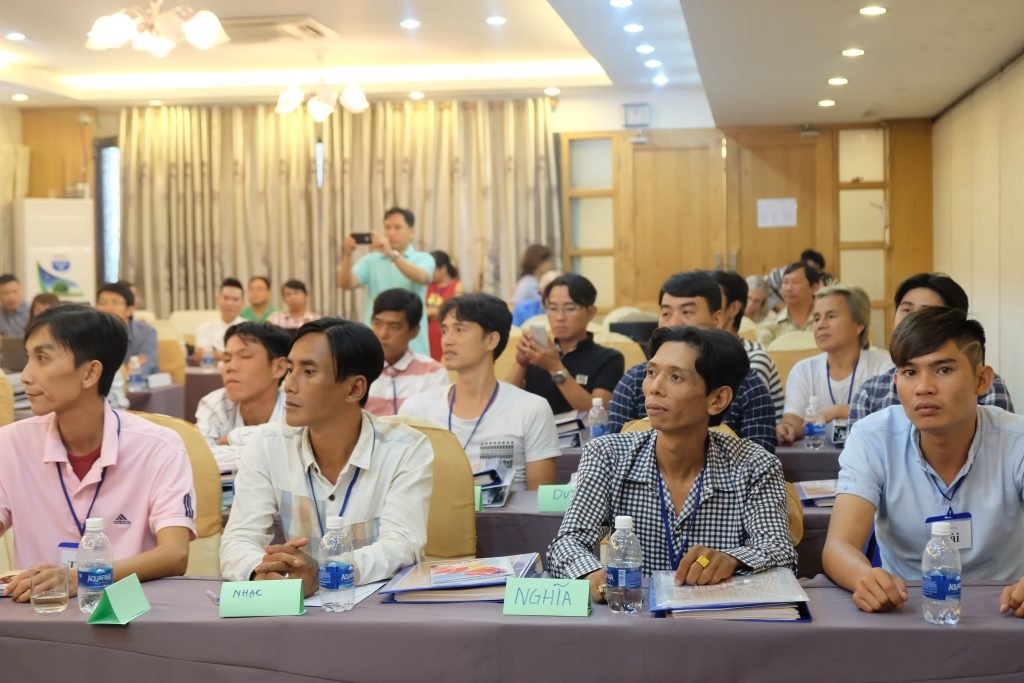
The main activities of MARS Program are group meeting, social activities and leadership development for peer leaders. MARS groups will be provided knowledge on basic topics, including: “Addiction is a brain disease”, “methadone is a medication”, “recovery process”, “Stigma and Related Advocacy”. Peers in MARS Program will learn know to set up and manage their own groups. Each MARS program can be set up and adapted based on specific needs from members joining this community.
Once patients understand addiction is a brain disease, rather than an evil behavior, their life can turn into a new page. Being a MMT patient is exactly similar to other patients in other chronic diseases, including hypertension, diabetes, etc. The changing in cognition will help patient have better attitude and happier life.
The most important benefit of this program is the spirit of community. All peers in MARS program learn and help one another. They are all in MARS together and they are the persons who understand most clearly about one another. Those who have the same goal of recovery are gathering together
The decision to join MARS program is completely voluntary, based on patients’ need. I?n other words, they cannot not fully reach to recovery just by the encouragement from clinical staff.
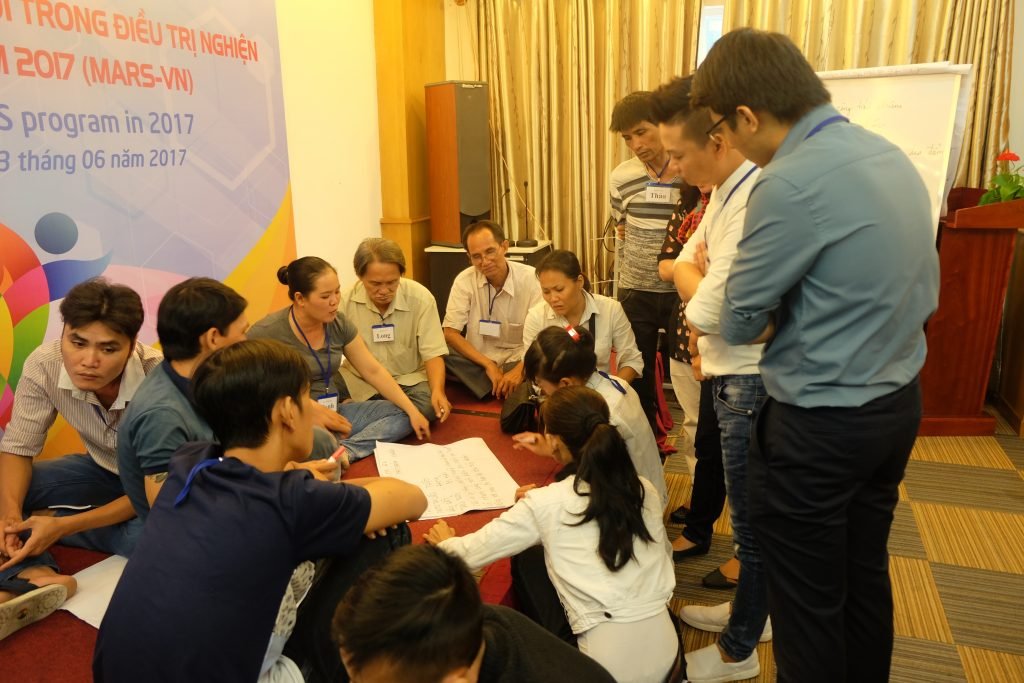
The very first international activity of MARS program was taken place in Hai Phong in 2015. Observing the benefits of this program to patients and community, SAMHSA decided to sponsor for this model to be set up and adapted to Vietnam context. The TOT training has been organized with the participation of professionals from Hanoi University, University of Medicine and Pharmacy in HCMC, University of Labor and Social Affairs, along with experienced counselors from MMT clinics in HCMC and Hanoi.
The TOT in Vietnam was conducted in 3 phases:
Phase 1: Course Overview. Observation Sessions by Mr. Walter Ginter and Ms. Suzanne-Westcott.
Phase 2: Practicing skills learnt, visiting MARS group in Hai Phong.
Phase 3: Implementing MARS training with supervisor and support from 2 experts. Trainers will draw experiences, improve skills and know how to make action plan for next steps.
Thanks to the wholly-hearted support from Mr. Walter and Ms. Suzanne, along with the dedication of trainer group, the program has gained some achievements. Since July 2017, HCMC has 2 MARS group based in MMT clinics of District 4 and District 8. They host meeting twice a month and receive many positive comments from both members and clinics.
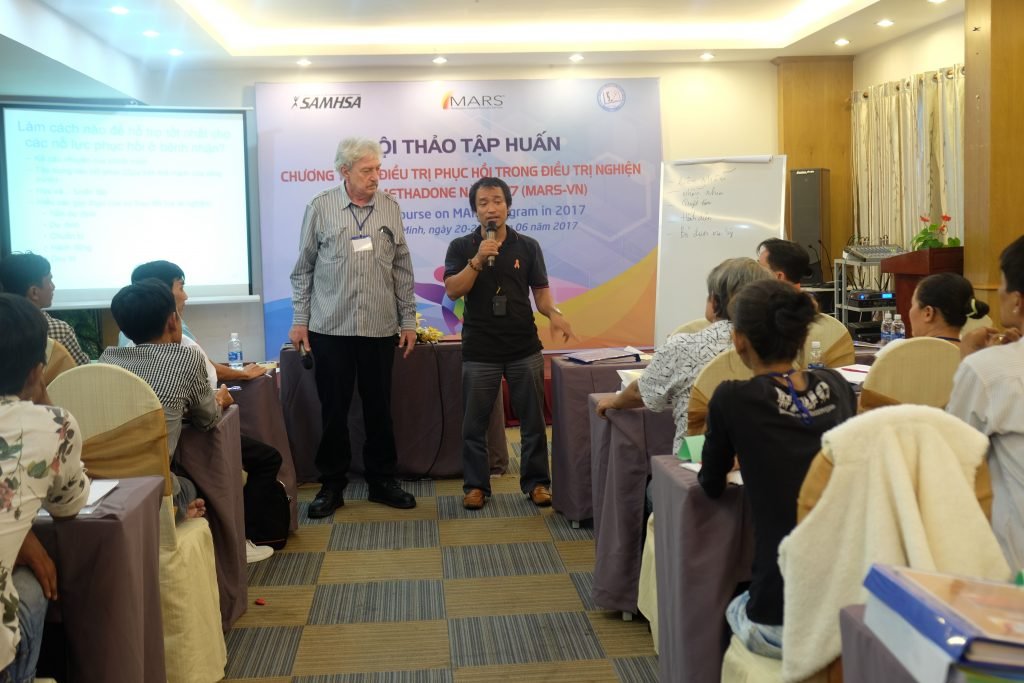
Some photos taken at the Training Workshop in HCMC.
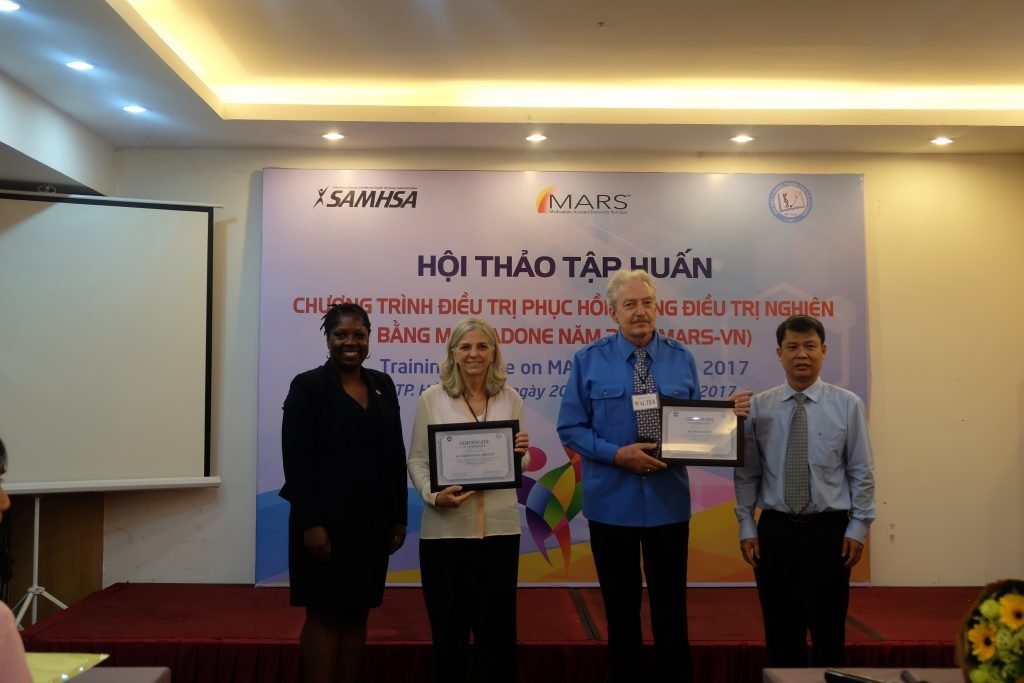

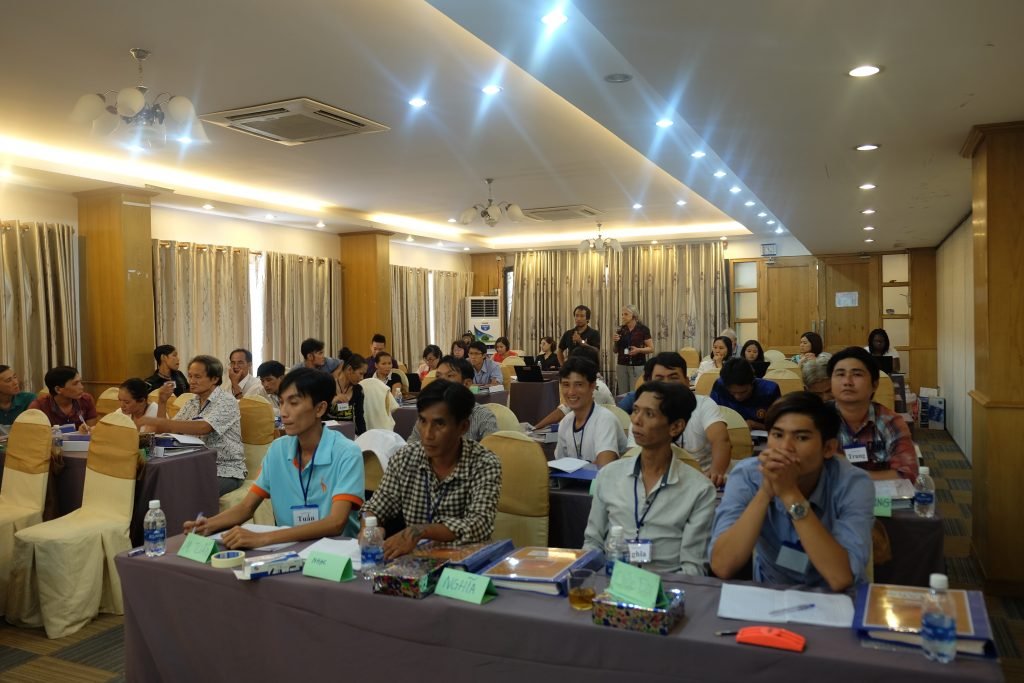
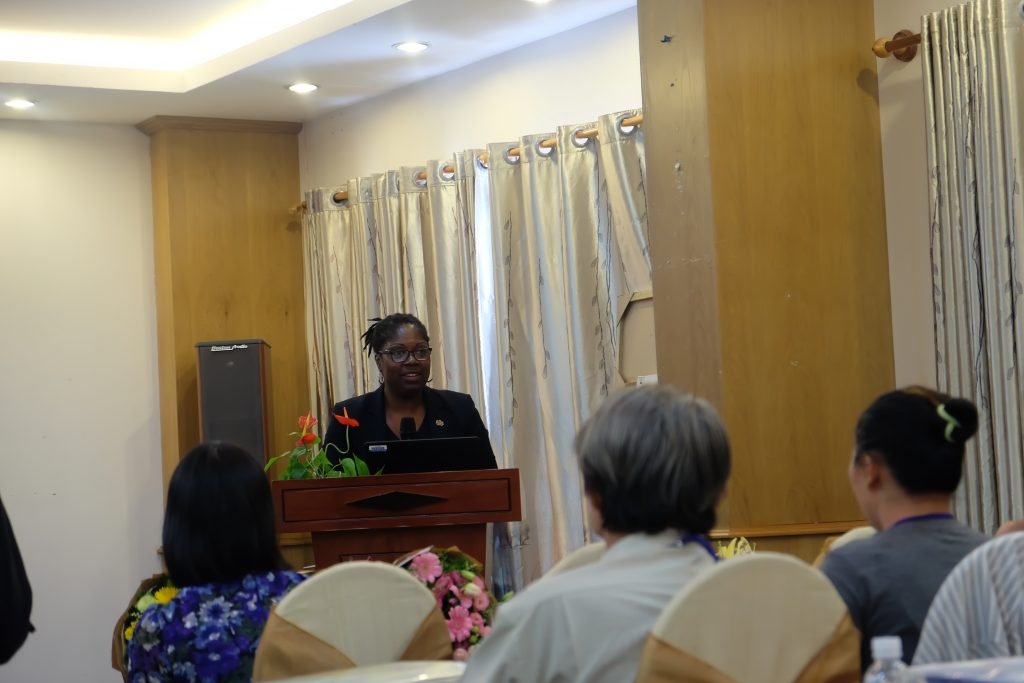

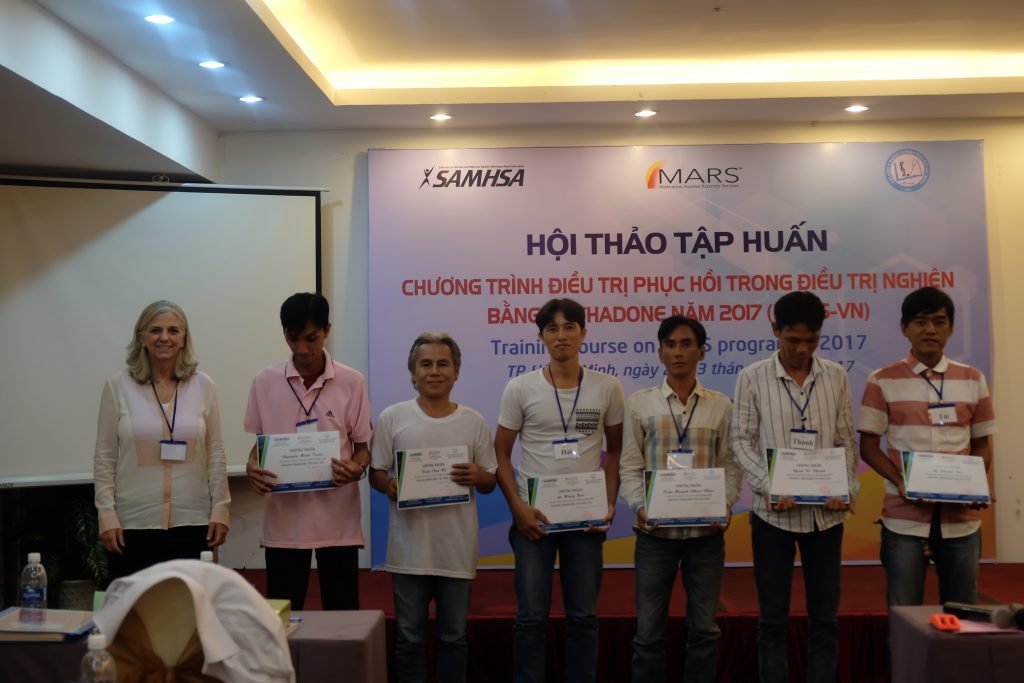
La Thi Hong Lan
